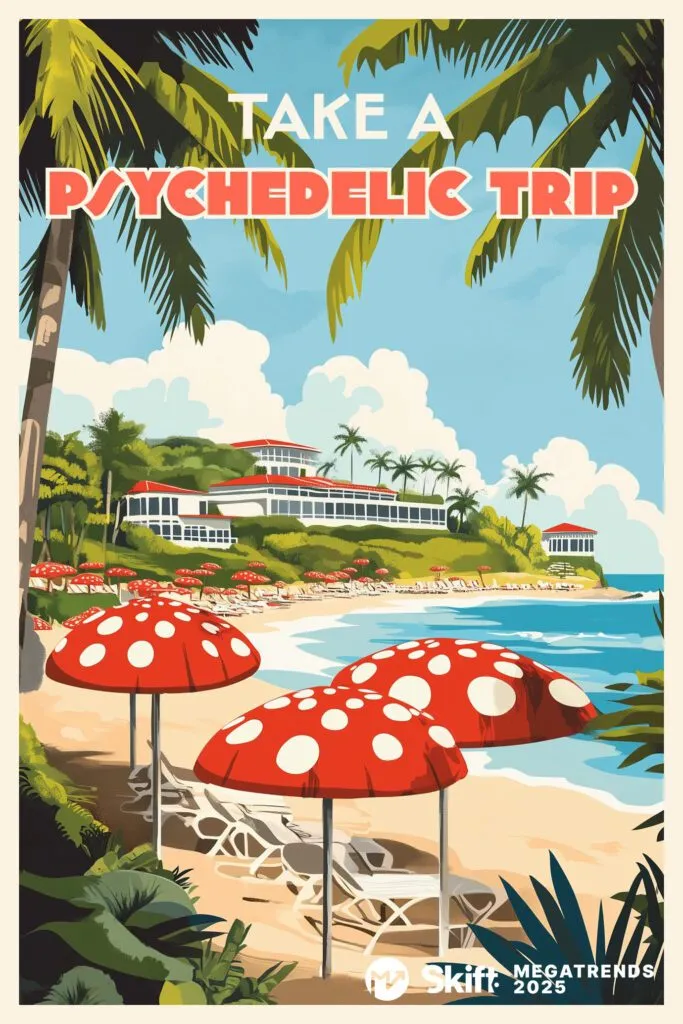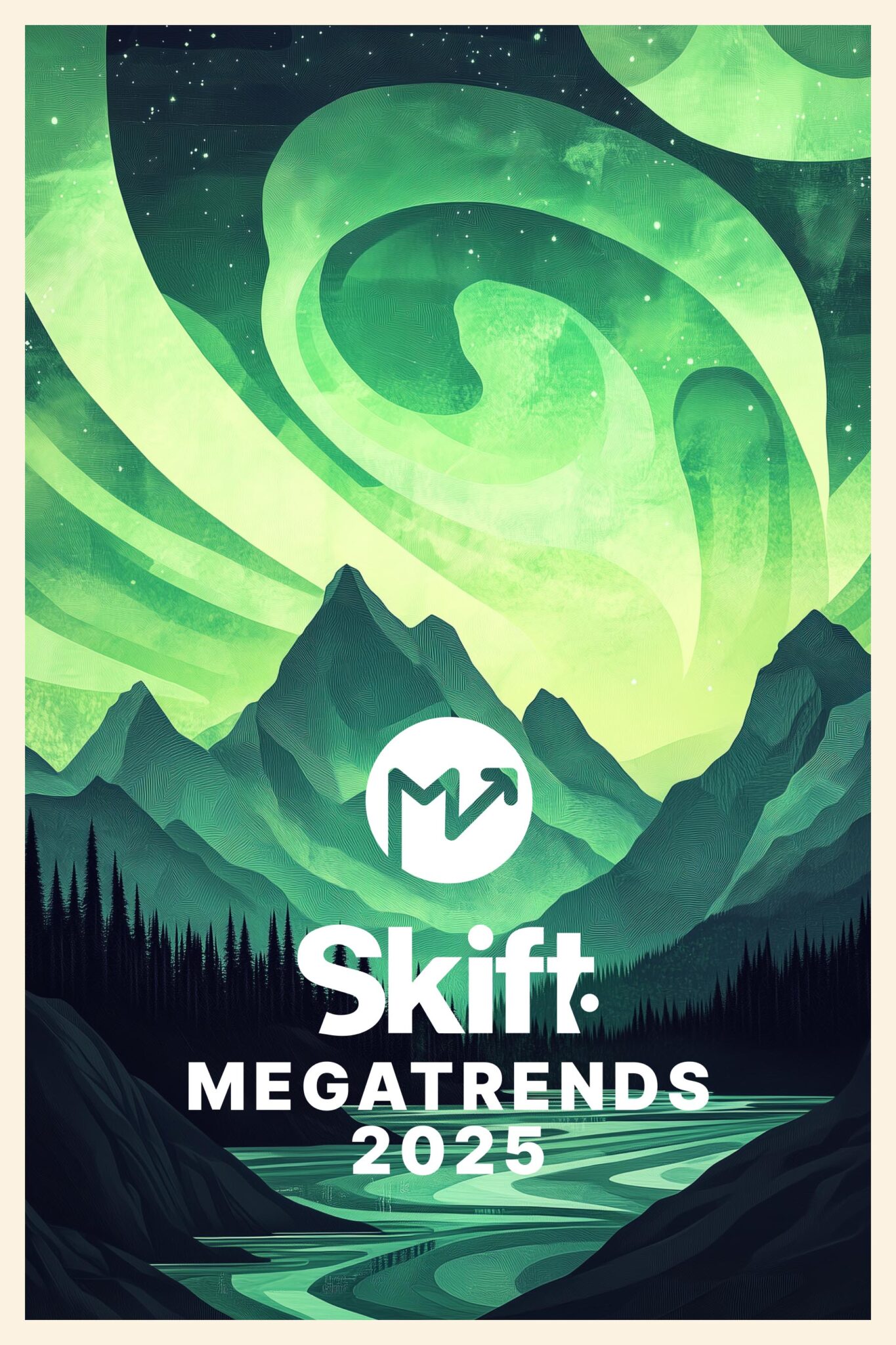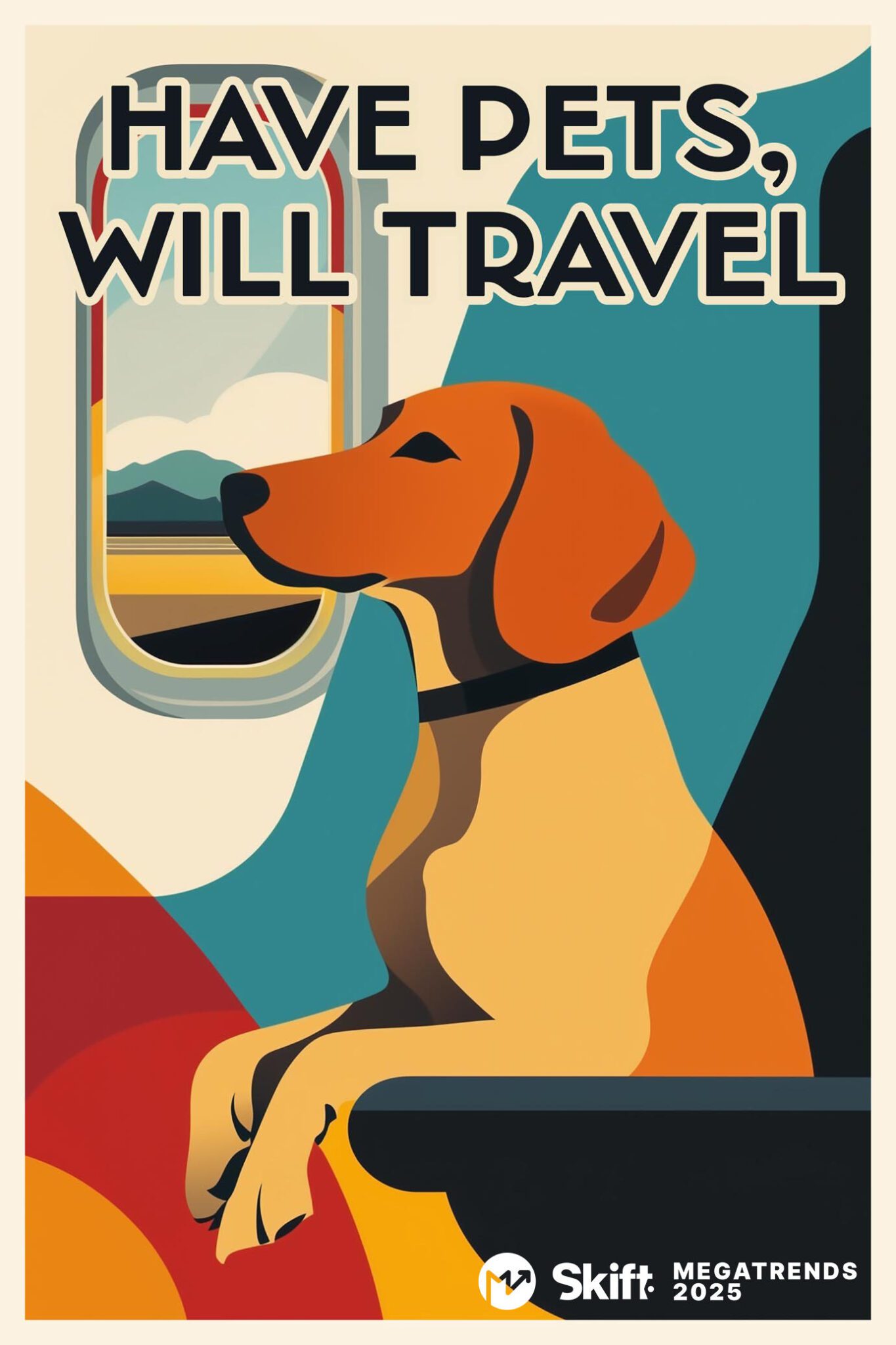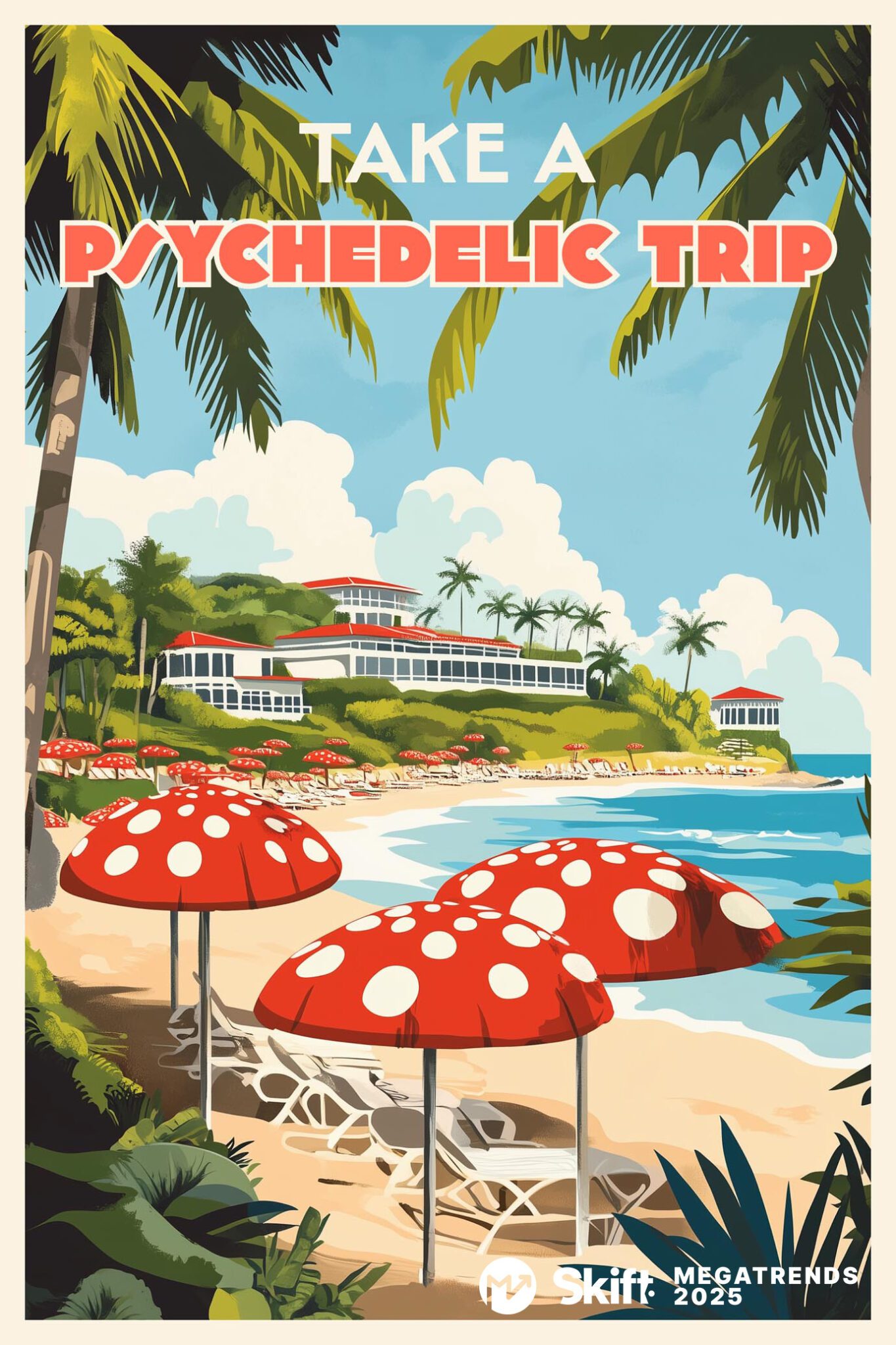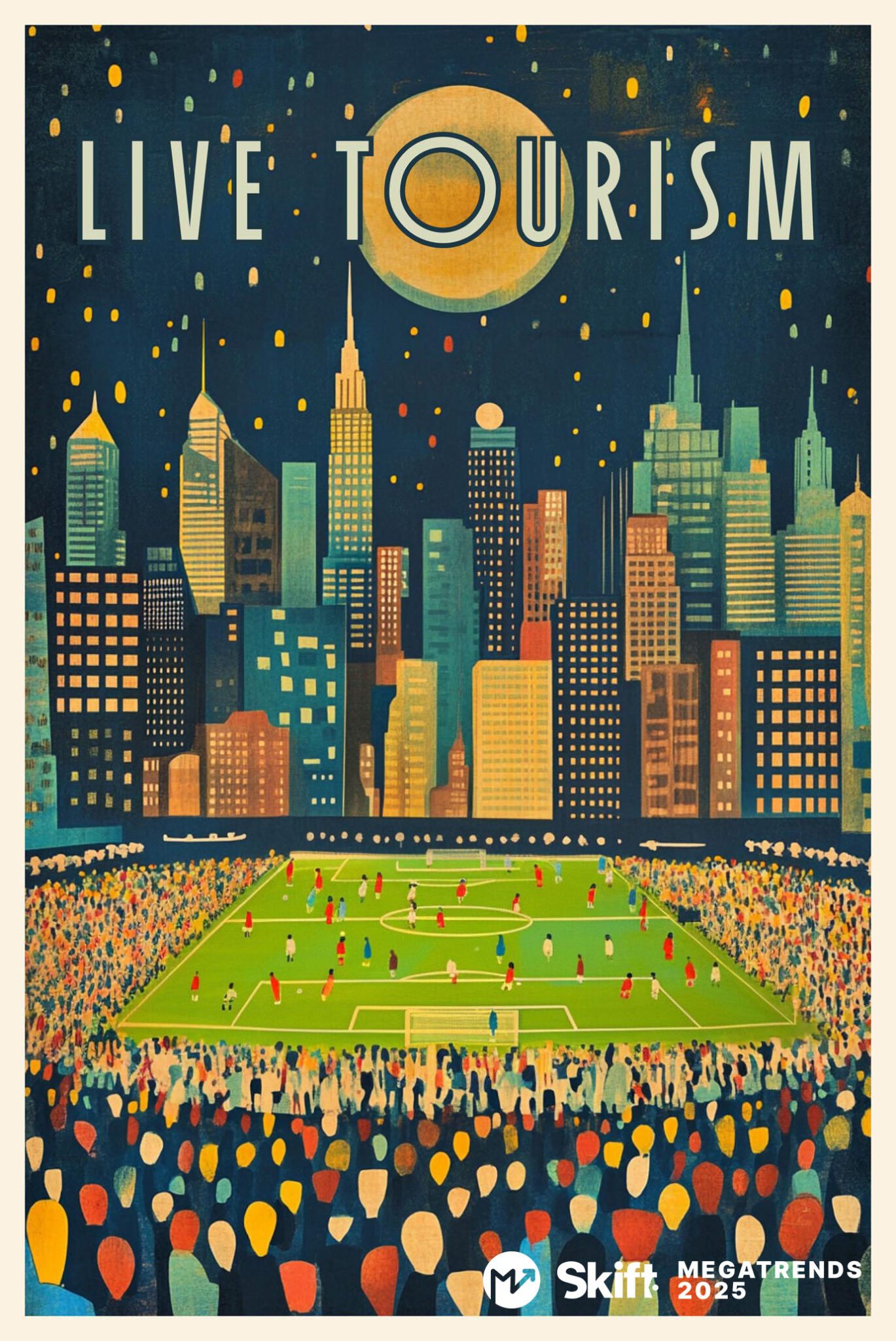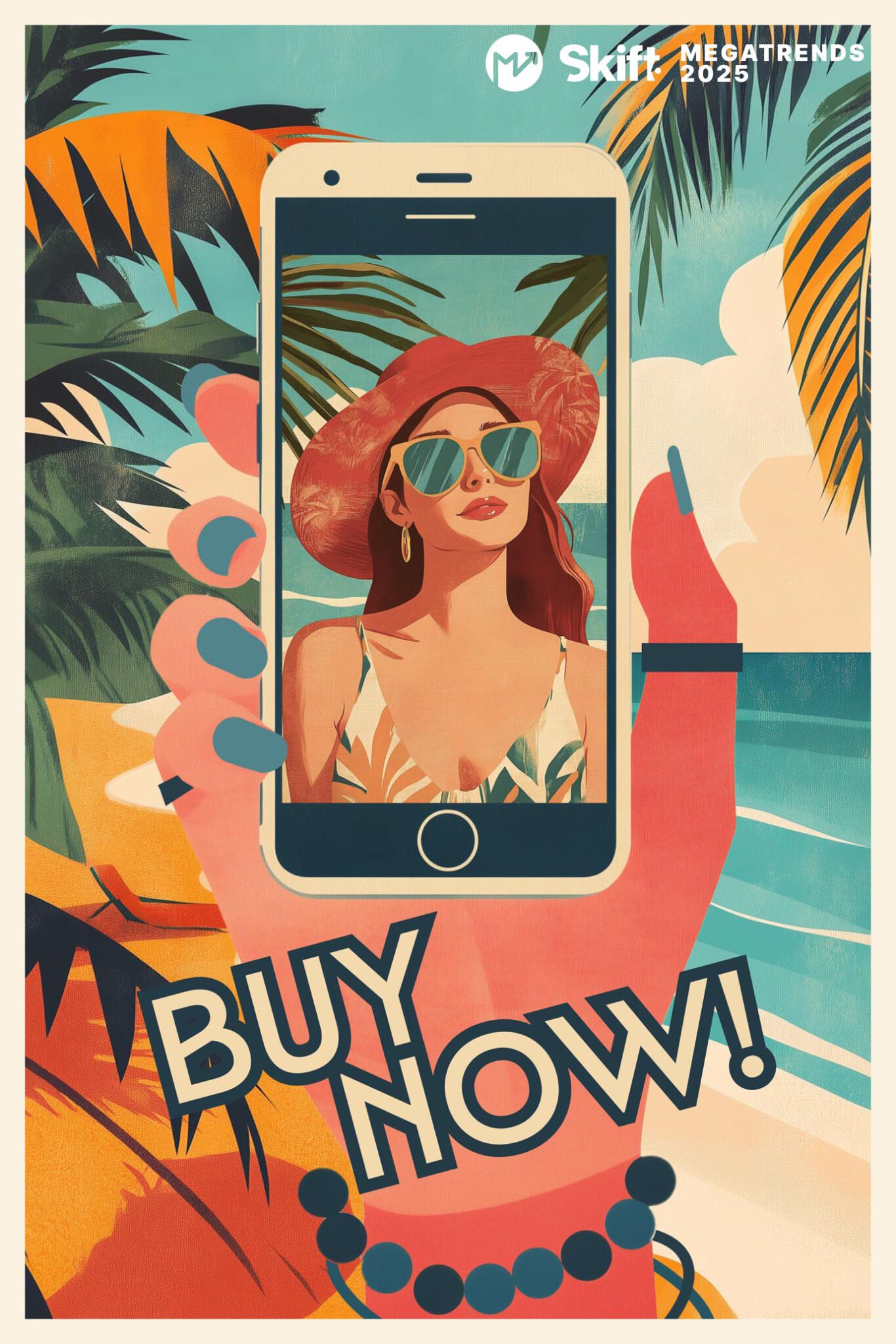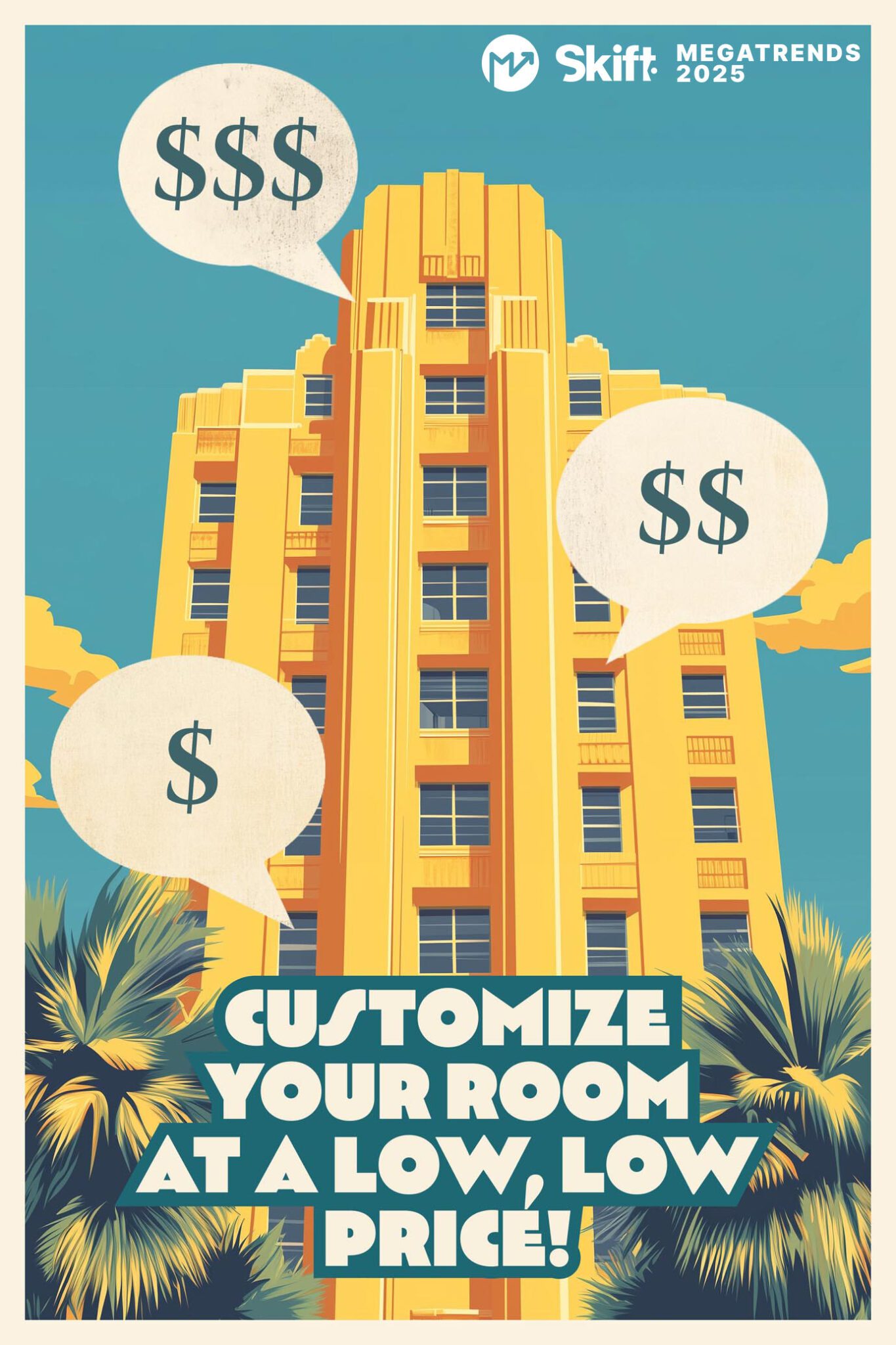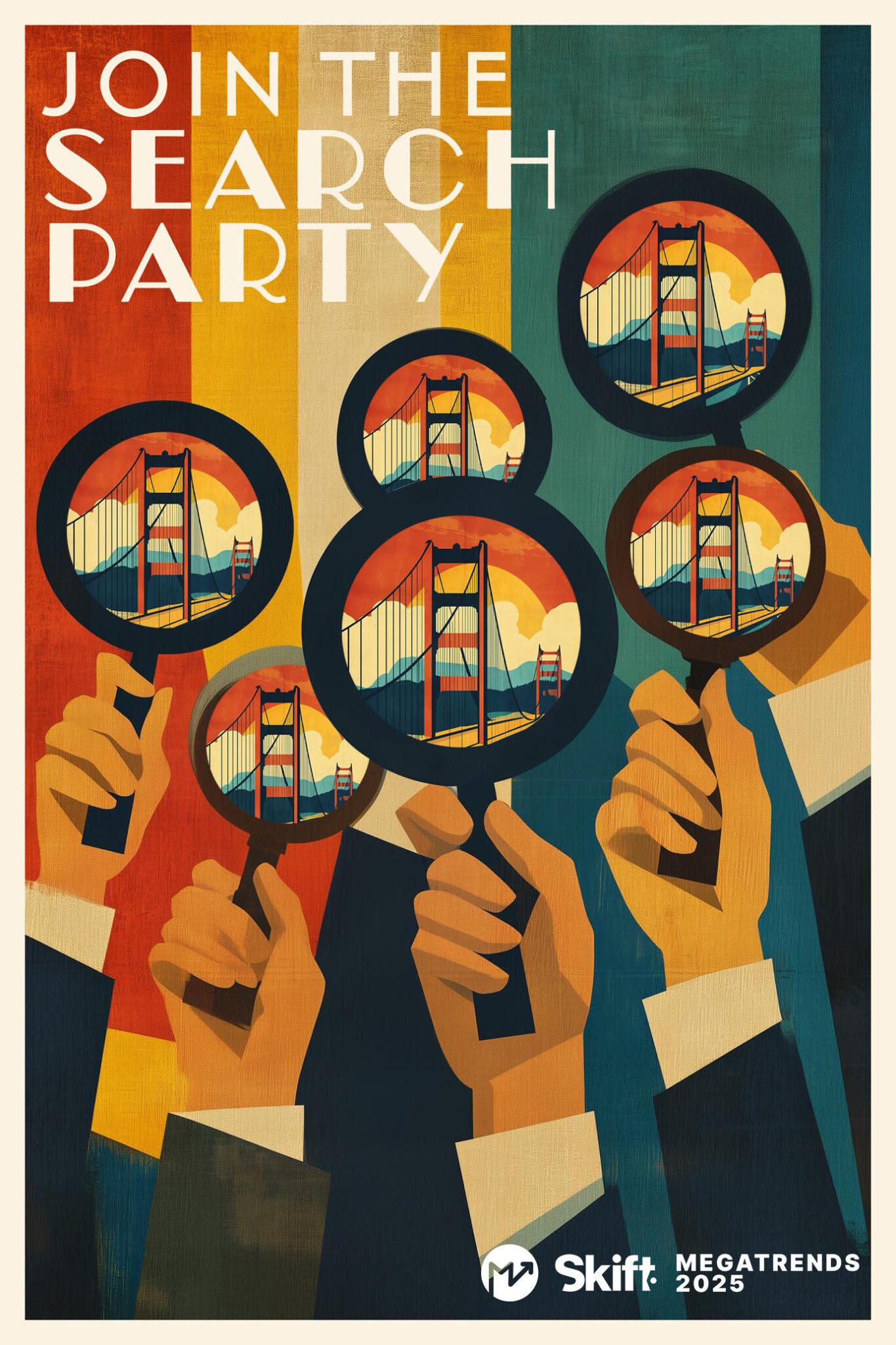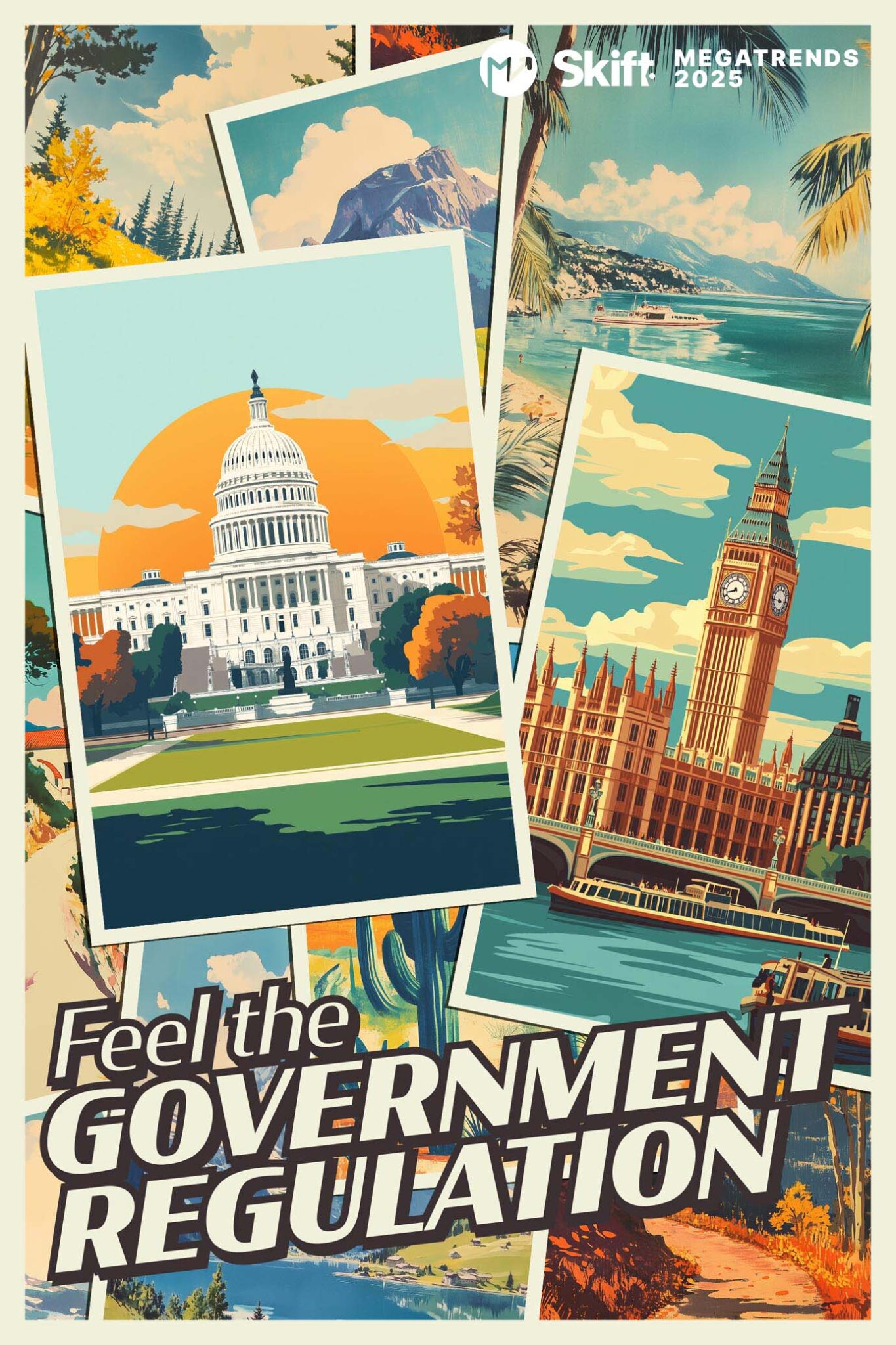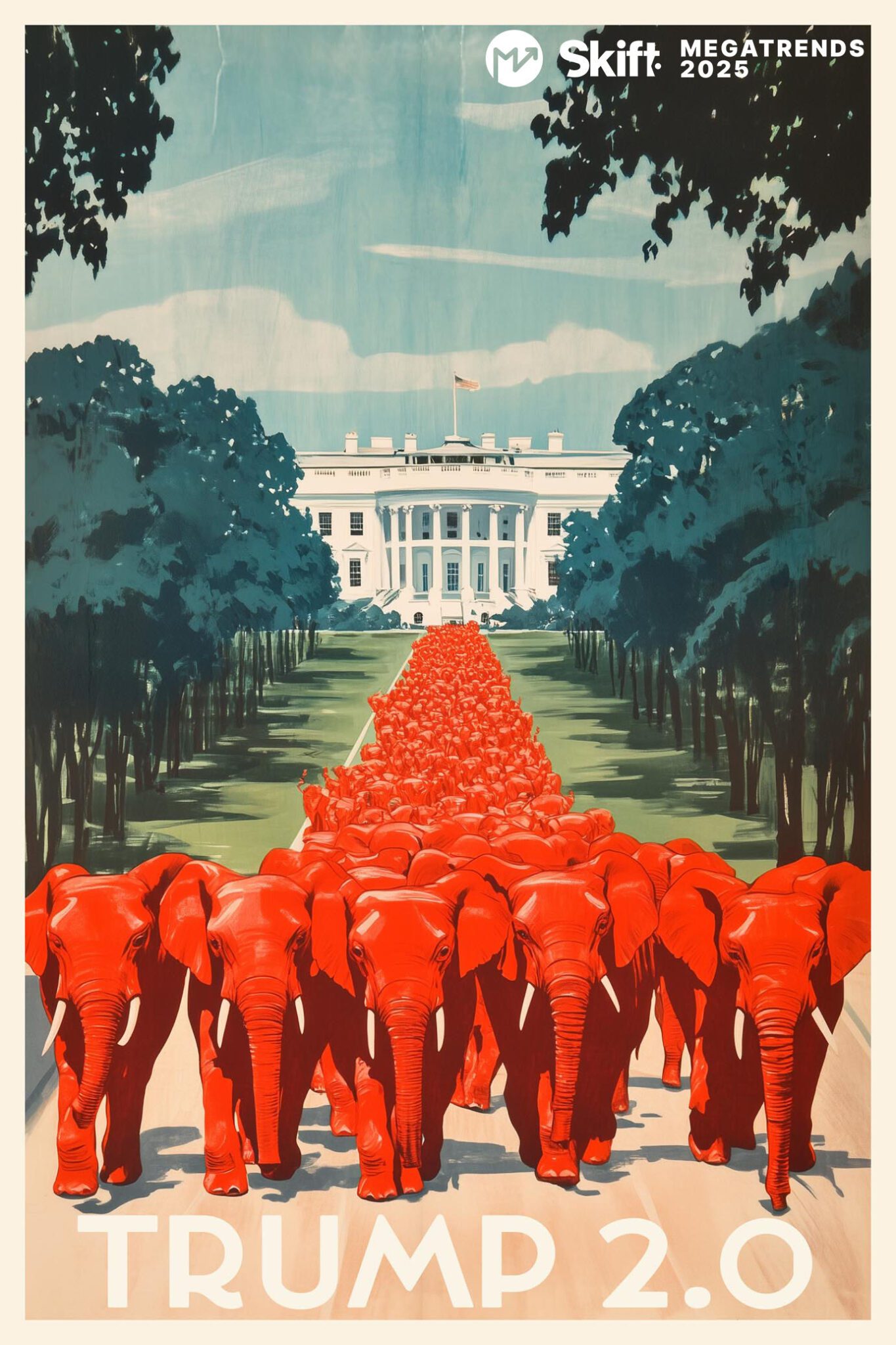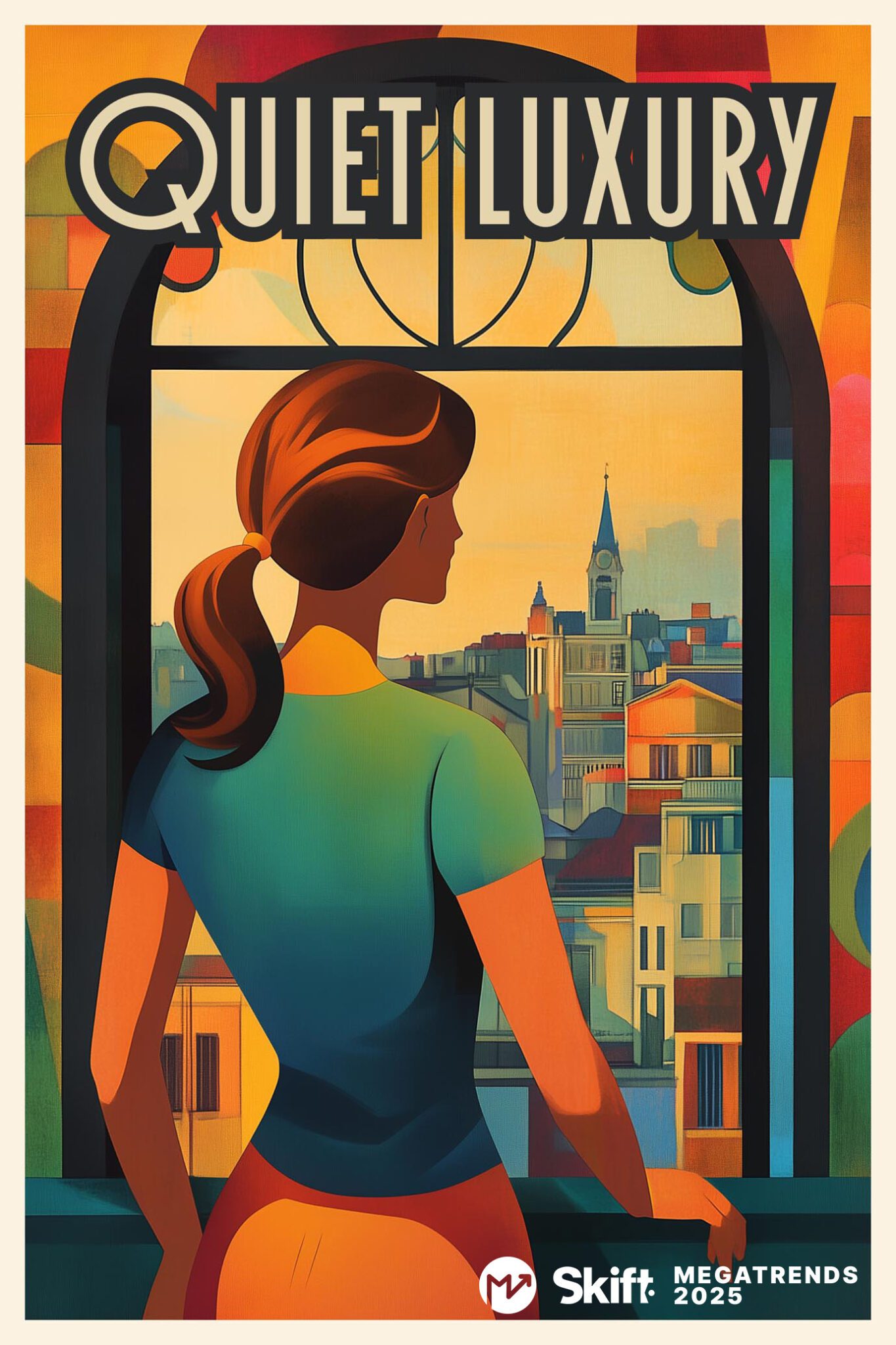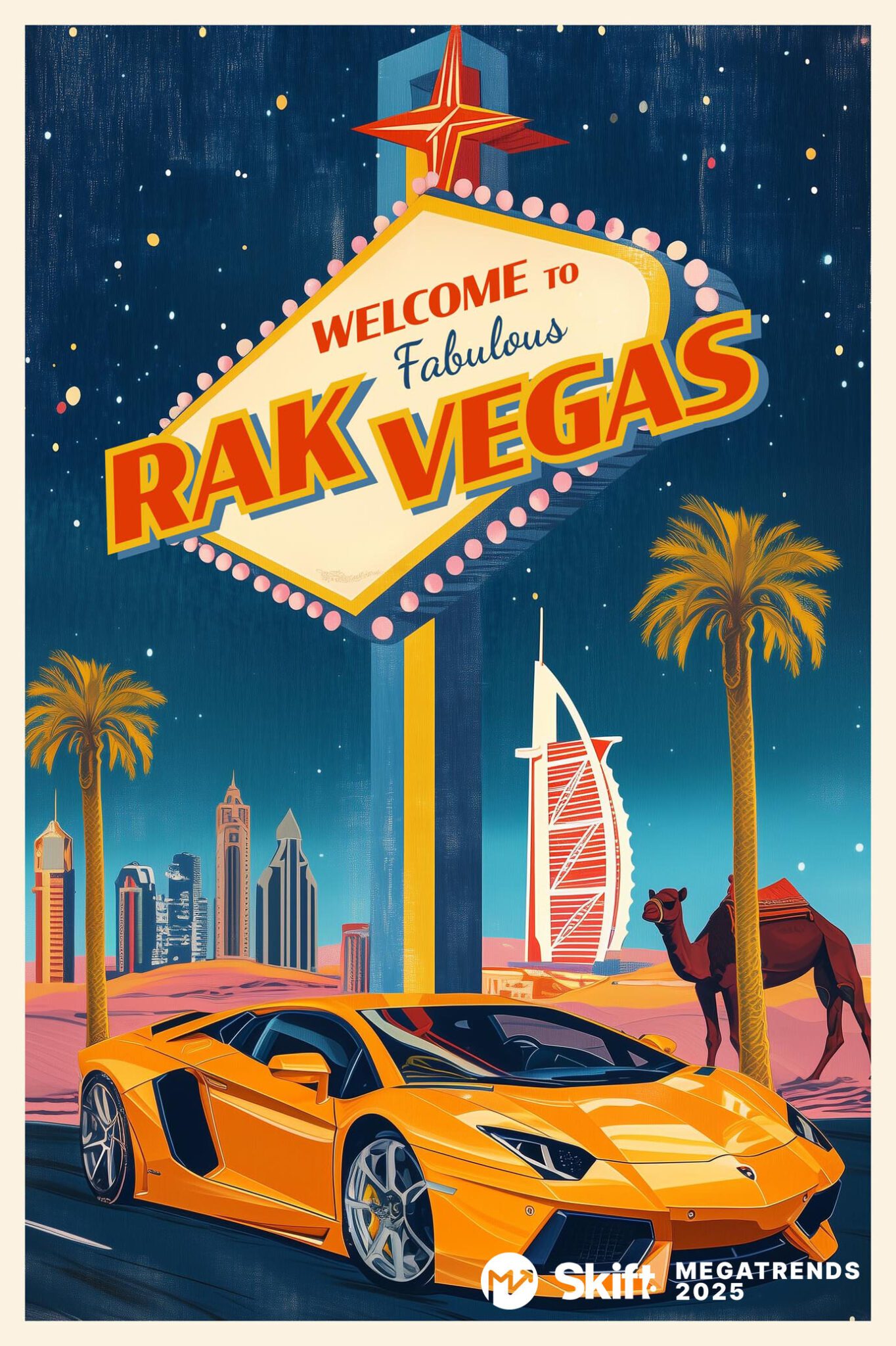Magic Mushrooms in the Minibar
Wellness in hospitality has evolved dramatically, as we highlighted in last year’s Megatrends. Luxury spa treatments have shifted toward high-performance living, with cold plunges, IV therapy, and personalized nutrition plans becoming standard at many high-end properties.
Brands such as Four Seasons, in partnership with Next Health, now offer services like NAD+ infusions and jet-lag recovery treatments — unheard of in hotels just a few years ago.
With the wellness space becoming increasingly crowded, hospitality brands are looking for what’s next. The answer may lie in psychedelic medicine.
Backed by institutions like Johns Hopkins and Harvard, psychedelics are gaining recognition as tools to address trauma, mental health, addiction, and even enhance productivity.
For hospitality brands, they offer an opportunity to go beyond traditional wellness and cater to travelers seeking truly transformational experiences.
Follow the Money: Psychedelics Enter the Mainstream
The financial backing for psychedelics is substantial, with venture capital and private investors funding startups focused on psilocybin, MDMA, and other substances. Academic research supports this momentum. A 2022 Johns Hopkins study found that psilocybin therapy could produce lasting benefits for up to a year.
This isn’t about counterculture or recreational use. The current focus is on precision dosing, clinical supervision, and measurable outcomes — structured, therapeutic experiences for mental optimization and healing.
Psychedelics and Hospitality: The Early Movers
Some hospitality brands are already embracing this space, especially in jurisdictions where psychedelics are legal or decriminalized. Retreat-based approaches lead the way, combining luxury with therapeutic rigor.
Most of the innovation seems to be happening in Jamaica: Rockhouse, a much-loved resort on the island, offers psilocybin soundbaths and sells Patoo mushrooms; Silo Wellness offers luxury psilocybin retreats in a controlled, therapeutic environment; One Retreats run psilocybin-assisted programs through its sister company, Rose Hill, a legal producer.
HOLOS in Costa Rica blends medically supervised psychedelic therapy with neuroscience and indigenous wellness practices.
And stateside, Odyssey, run as a public benefit corporation, does 5-day, 4-night guided psychedelic experiences in Oregon, where the therapy is legal.
These retreats share a focus on safety and structure, operating in regions with permissive regulations to ensure guest outcomes and protect brand reputation.
Opportunities for Hoteliers and Wellness Practitioners
For hospitality leaders, psychedelics represent an opportunity to stand out in a crowded market. Travelers increasingly seek transformative experiences that go beyond relaxation, making psychedelic wellness a logical next step.
“As the cost of travel has risen, people are looking to both maximize their vacation experience as well as bring more of it home with them,” says David Weiner, co-founder of Gossamer, a brand and publication focusing on psychedelics.
“It used to be enough to come back with some postcards and maybe a local delicacy, but now there’s the possibility of flying home with a new sense of self and a level of healing beyond what years of therapy may be able to deliver. For some, they might leave for vacation as one person and return as a distinctly different one. It’s hard to put a price on that.”
Early investors could benefit from significant financial upside. Psychedelic wellness travelers are willing to pay premium rates, with retreats charging $3,000 to $10,000 per week for medically supervised programs. Comparisons can be drawn to wellness destinations like SHA Wellness Clinic in Spain or Lanserhof in Austria, which charge top-tier prices for specialized traditional detox therapies.
However, this isn’t a space for brands to jump into without preparation. Success requires understanding the regulatory landscape and committing to safety and ethical practices.
Risks and Challenges
The regulatory environment is a key hurdle. Psilocybin is legal in Jamaica and Costa Rica and decriminalized in parts of the U.S. (like Oregon) but remains illegal in most regions. Missteps could result in legal and reputational risks.
Ethical considerations also loom large. Psychedelics have deep roots in indigenous traditions, and their commercialization raises concerns about appropriation. Respecting these origins is essential for guest trust and credibility. Safety is paramount. As is setting proper expectations. Psychedelic therapy requires trained professionals, strict protocols, and robust aftercare. Mismanagement could have severe consequences for guests and brands alike.
What’s Next?
The integration of psychedelics into hospitality is in its infancy, but the potential is large. As research validates the benefits and societal attitudes shift, this trend is set to grow.
Retreats like Silo Wellness, Odyssey, and HOLOS are early movers on the path, but there is more room for innovation. From immersive, multi-day programs at luxury resorts to boutique properties offering other new services, the possibilities are vast.
For hospitality brands willing to navigate the complexities, psychedelics could be the next major frontier in wellness. The rewards — both for guests and the industry — could be transformative.
More Trends
Stay Ahead of the Megatrends With The Daily
Skift's morning newsletter delivers breaking news, features, and exclusive analysis from around the world straight to your inbox, five days a week.

